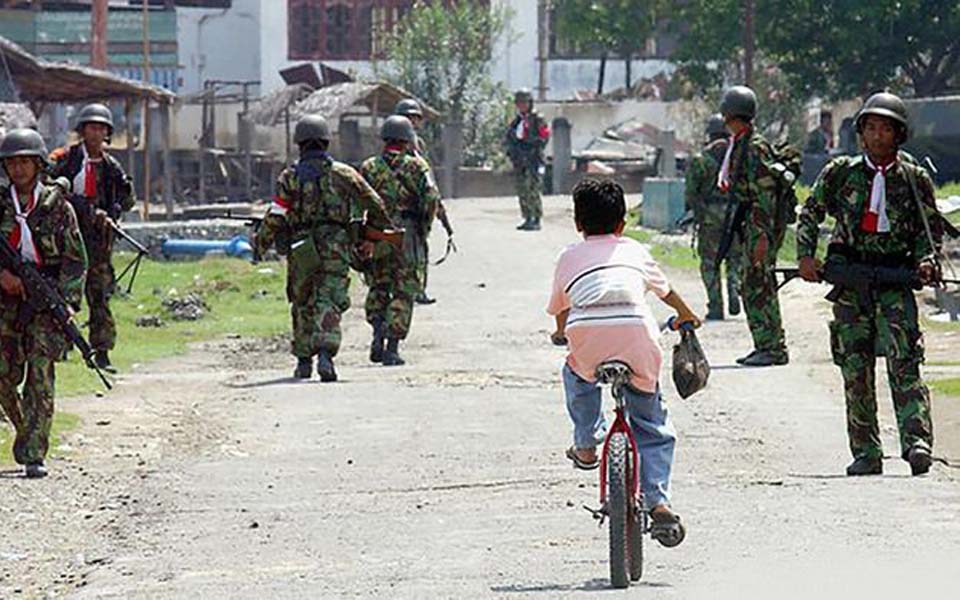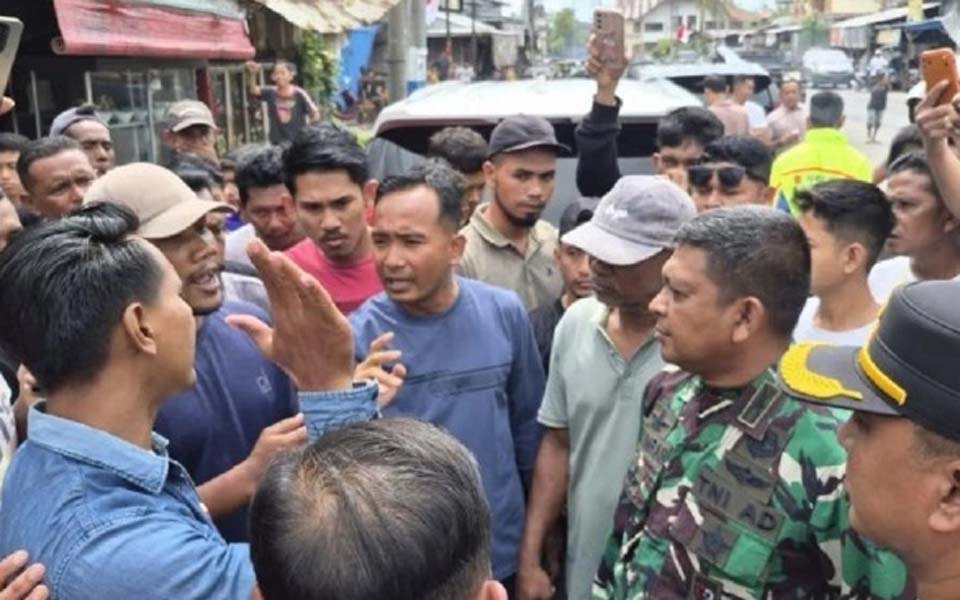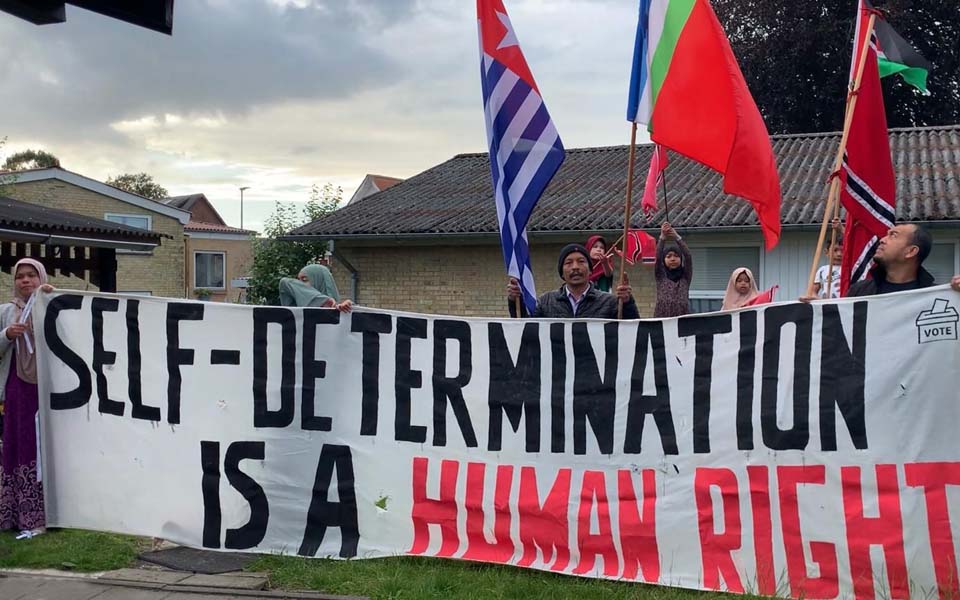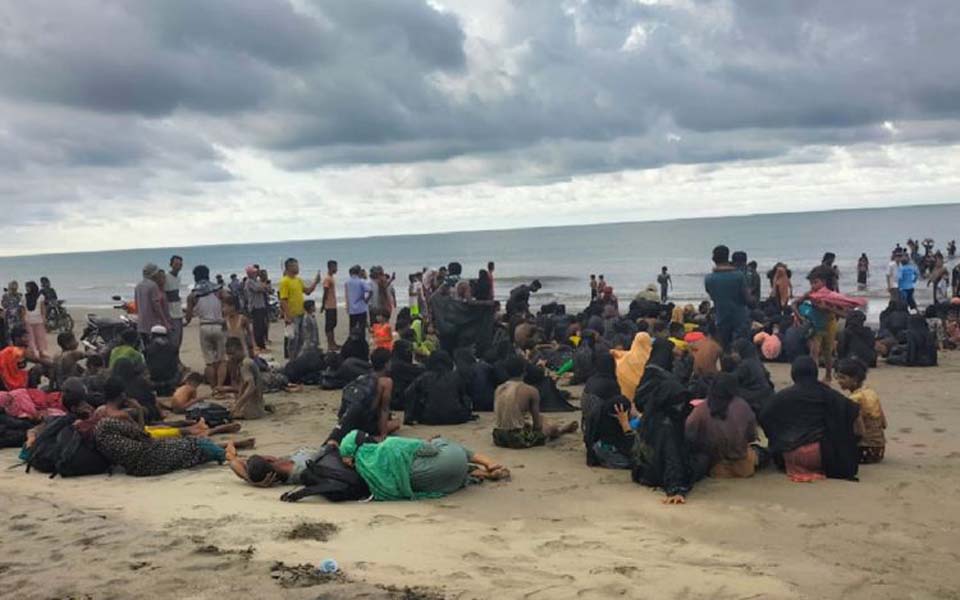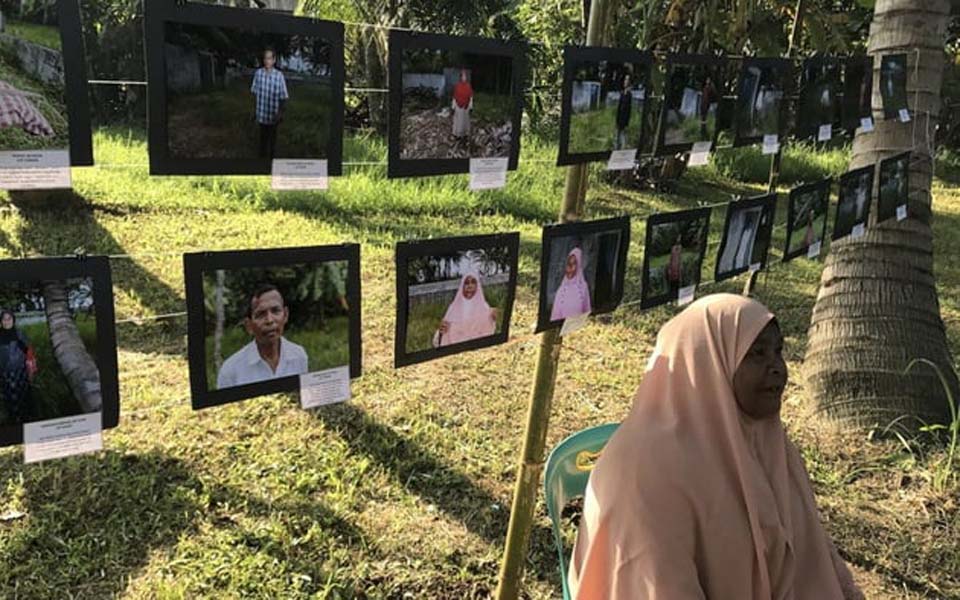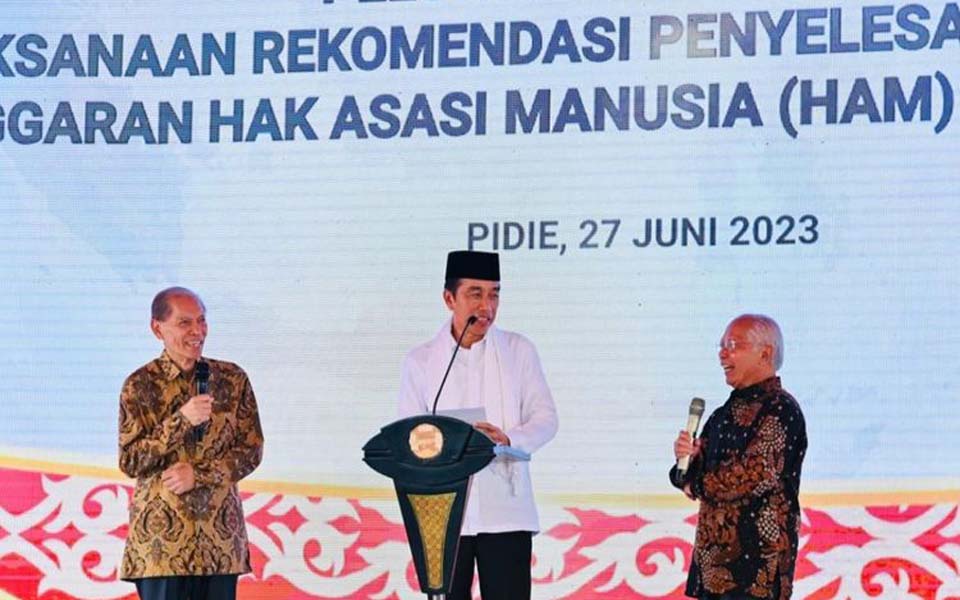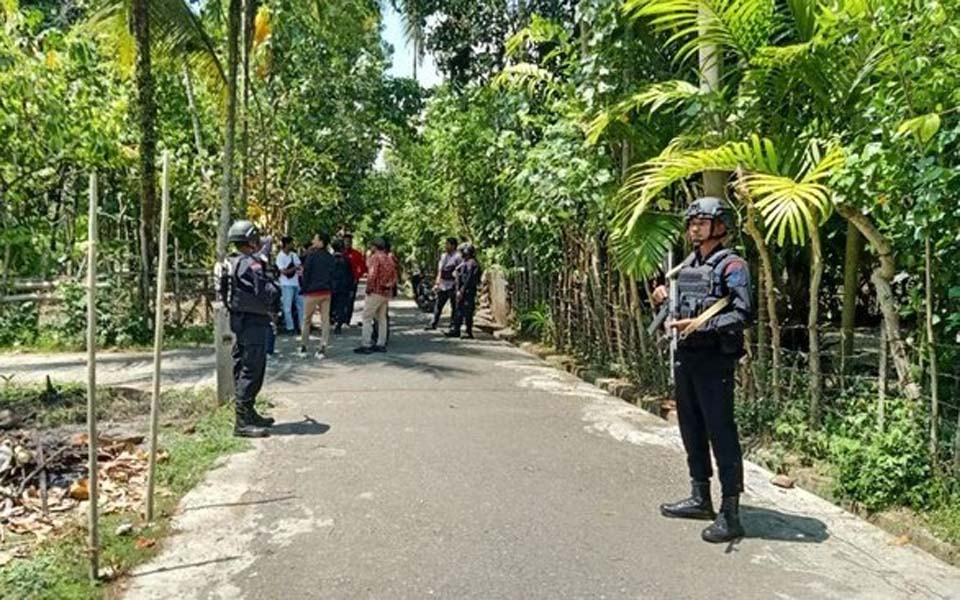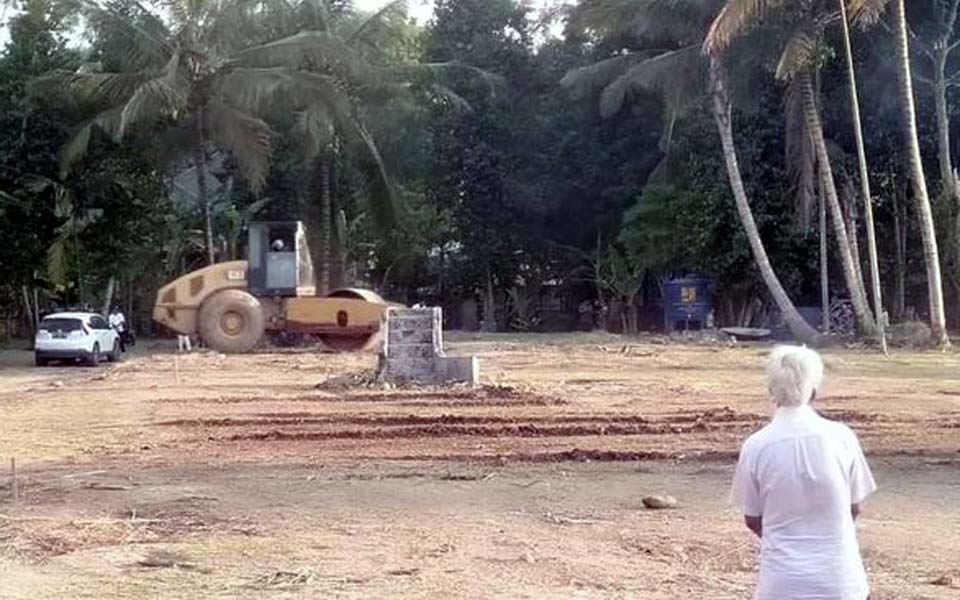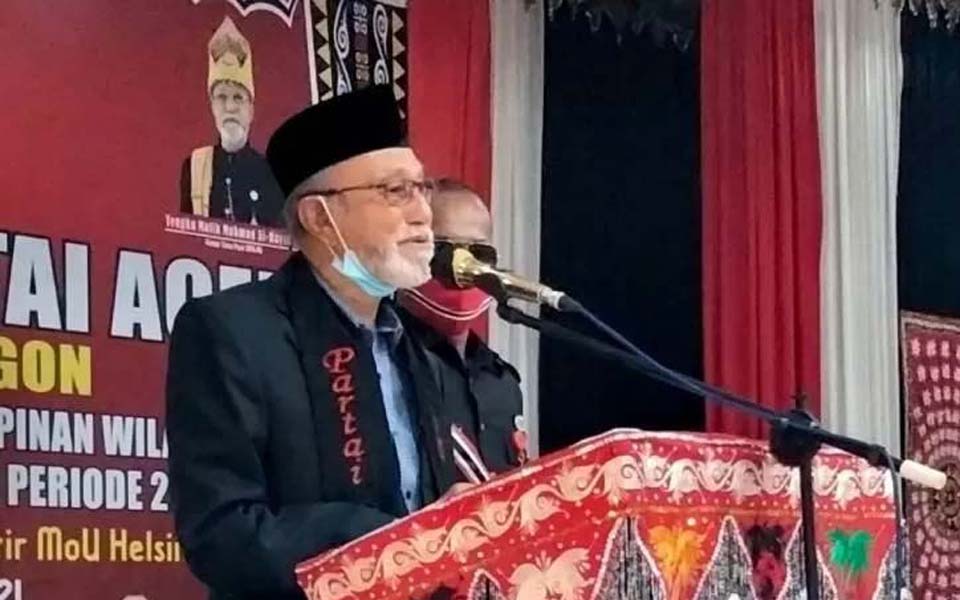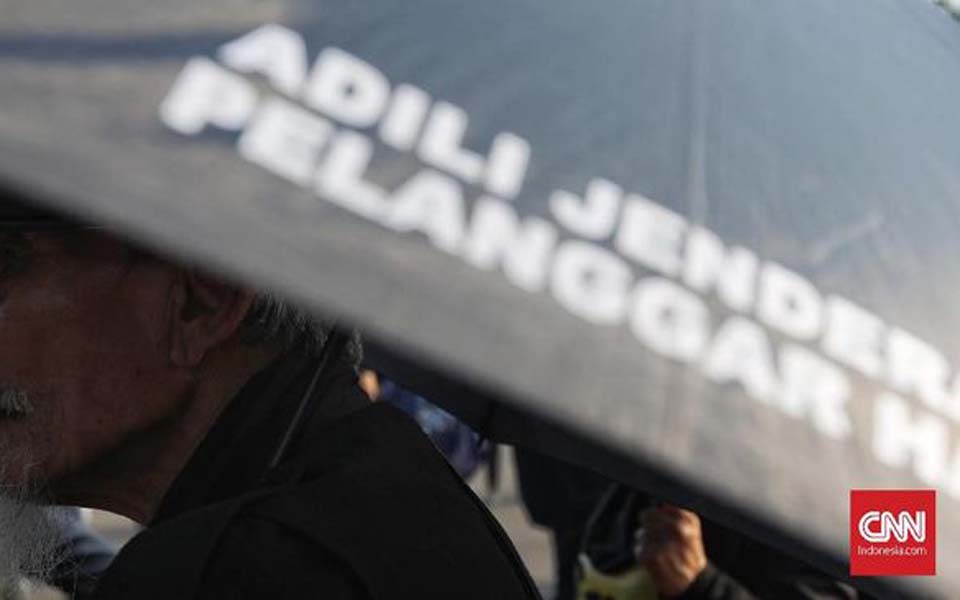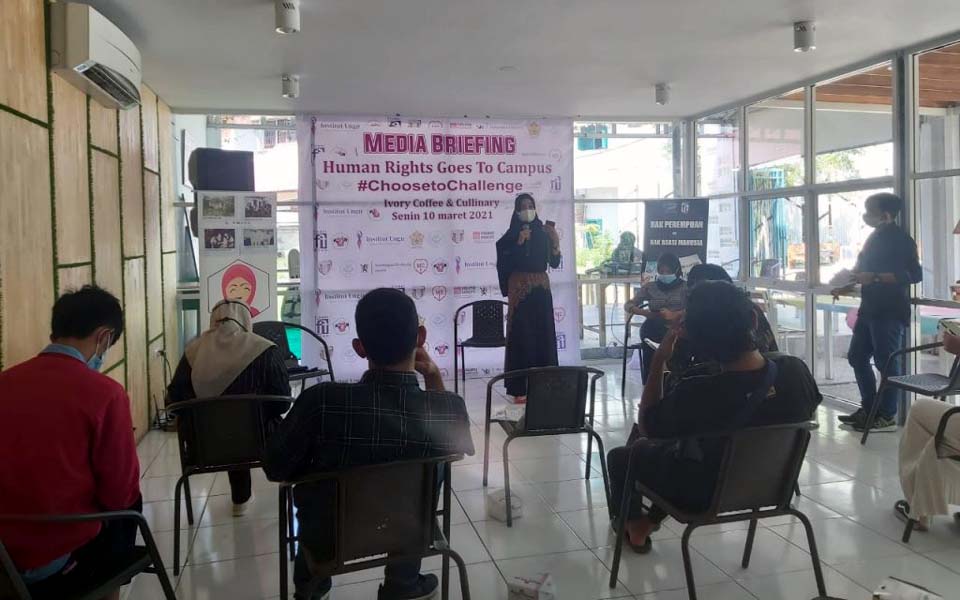The real reason why the imperialist government does not pay attention to the human rights violations in Aceh is due to the importance of international capital, such as Exxon-Mobil International, which has a symbiotic relationship with military control and civil bureaucrats in Aceh.
This mutual symbiosis between the interests of international capital and the Indonesian oligarchy and military, is a trigger which has also determined the nature of the resistance of the people of Aceh. It is necessary to add that neo-liberal economic policies, which are forcibly imposed by imperialist governments upon the third world via monetary institutions such as the IMF and World Bank, accommodate the interests of big business (transnational).
Aceh’s natural resources, primarily natural gas and oil, are not devoted towards improving the productivity and living standards of the people of Aceh. During the 1980s Aceh produced 30% of Indonesia’s gas and oil exports, which increased in 2000 to 50%. During the 1990s Indonesia became the worlds biggest exporter of gas, contributing 40% of the world’s LNG. Up until the beginning of the 1990s the Arun gas field in Aceh constituted the biggest LNG reserve in the world. With the scarcity of natural gas reserves in Indonesia and the central position Aceh holds in terms of its production, the province holds great importance for the central government in Indonesia. The benefits flow to the political elite in Banda Aceh, the political elite in the central government, and transnational corporations.
However, the Indonesian government, whose character has been formed since the government of Suharto (the New Order), is an elitist government with ‘trickle down effect’ economic policies. This has meant that Aceh’s rich natural resources have not been used to contribute towards increasing the productivity of the Acehnese people (ie. building of schools, health facilities, and technology transfer) or the modernization of other forms of infrastructure. Even though Aceh is rich in natural resources, it is included amongst the 10 provinces with the highest number of rural poor. In 1993, more than 40% of 5,643 villages in Aceh constituted poor villages. Aceh has the poorest population of all the provinces in Sumatra.
All of this is further exacerbated by the neo-liberal policies enacted by the Indonesian government, in the form of the removal of subsidies for basic goods (oil, gas, electricity, education, health) as well as the privatization of publicly owned businesses and the payment of foreign debt. Several weeks before the tsunami wave, Susilo Bambang Yudhoyono (SBY) and Yusuf Kalla, who rose to power by rhetorically championing the ‘image of the people’, hurt the people of Indonesia Aceh by increasing the cost of several types of oil and gas fuels which are consumed primarily by Indonesian households. In regards to the paying of foreign debt, the total APBN expenditure for 2004 was 374,3 trillion rupiah (which was set before June 2004), 156 trillion of which was used to pay for primary installments as well as the interest on foreign debt, including the repayment of government obligations. This amount consumed 41.69% of the national budget. Meanwhile the budget allocated to the people, such as for education, was only 15.249 trillion or 4.07% of the total national expenditure (budget portions must be divided with culture, youth and sport). This is also the case with the budget for social welfare, health and the empowerment of women which was far lower still, that is 7.105 trillion (1.8%).
Aceh: Disaster without end
The earthquake disaster which was followed by the tsunami waves on 26 December 2004 dramatically escalated the suffering of the people of Aceh. The disaster, which has taken more than 94,000 lives, has increased the total number of Acehnese who have become victims during the military oppression of the New Order and under the Military-Civil Emergency. The destruction of buildings and other physical infrastructure has effectively doubled the destruction and killing that has been ongoing throughout more than three decades of military control.
For the overwhelming number of victims of this disaster there was no protective infrastructure – i.e., beach vegetation (mangrove forests). What’s more there was no warning given to the population to relocate if they were unable to build protection (because from geological data it is evident that the region is vulnerable to tsunami, in fact several scientists have already warned in 2002 that there would be tsunami). This is evidence that what really occurred was a delay due to the fact that Aceh has been closed and under military control.
The position of the Indonesian government, which politically still maintains a state of Civil Emergency in the midst of this disaster, is arrogant and is resulting in even more victims. What’s more is the even greater arrogance of the TNI in viewing the situation. Widodo and Endang Suwarya – the heads of the military emergency in Aceh before the Civil Emergency, clearly stated that humanitarian relief efforts and security operations should receive equal attention, whereas SBY had already said that humanitarian relief efforts would be foremost, and requested that GAM help in the process of post-earthquake evacuation and rehabilitation. Also the handling of relief efforts has been embarrassing, far below standard. We can see clearly that there is no unified command to handle this national disaster.
Alwi Sihab has already disclosed the attitude and “work already done” under his command in handling the emergency, however his response increasingly reveals the shoddy management of the national government in handling a disaster. Information has been released sporadically, not in an organized and systematic manner. What should have been done after the tragedy was that the President immediately formed some type of Disaster Relief Command for Aceh-North Sumatra (under whatever name), that is a centralized command which coordinated all the relief efforts. Complete with staff advisors at the national level. For example, it would begin with aerial portraits immediately after the disaster, then the establishment of posts to achieve set targets. This would have helped avoid the pile up of aid, such as has occurred in Banda Aceh, Medan and Halim. The next task would be the provision of information. For example at Halim, all the necessary information required by officials, volunteers, the press and the public could be made available. The series of tasks to be systematically carried out would then be: initial assistance, the establishment of hospitals, the burial and cremation of corpses, sanitation, and preventative measures against infectious diseases.
Reserves consisting of volunteers could be formed into units. Registration, documentation, assistance for people, for roads and housing, communications between posts and regions, could all be carried out. Thailand was able to take photos of the deceased before they were buried, and the government here should also be able to rapidly do all of the above tasks. With proper controls and supervision the communications system would not be mutually recriminate. If the President is the commander and the chief of staff is the Minister for Social welfare, all the commanders and ministers can then quickly allocate their people within the Disaster Management Operation. It is not possible to involve all staff and ministries if you don’t want chaos or inaction.
The situations as it stands now: organization of this type is non existent. At the very least the public should be informed so that they know where they should get in contact. It is wrong to assume that if the Minister for Social Welfare and the Army’s Chief of Staff has been designated as responsible that everything will operate smoothly. It is not possible that things will run efficiently on their own. In fact it was even more counterproductive when there was a recommendation from the DPR in a closed a secret meeting last Tuesday regarding the implementation of a Non-Combat Military Operation. It is counterproductive firstly because clearly it is already late. The full mobilization of the army should have been carried out immediately after the earthquake- however in the field at that time we saw that there was no significant mobilization on the part of the army at all, on the contrary fewer qualified troops were sent than for the military emergency. Then secondly, because the civil emergency status in Aceh is not beneficial towards the democratic participation of various elements of civil society in Indonesia and Aceh. Even at this moment it has become evident in the field that the involvement of numerous civil organizations in Indonesia is not guaranteed. The TNI has conducted sweeping operations, checking the identity cards of volunteers several times during the journey of our volunteers from Tapak Tuan to Meulaboh, as well as collecting a 50-100,000 rupiah ‘entry fee’ into Meulaboh itself. Logistical assistance has been centralized to the point that coordination posts are situated within the offices of the local military command. There are also still military operations under way in East, Central and South Aceh. Thirdly, the implementation of this operation- which has even been given legitimacy via a TNI regulation – further strengthens the domination of the military in the process of disaster management and recovery in Aceh. However what is urgently needed is a comprehensive approach, (not the transfer from the government to the Department of Defense of funds to the amount of 250 billion for non-combat military operations) that involves various actors- scientists, urban planners, democratic civil organizations etc within an integrated Disaster Management Operation. As the situation stands now, the TNI has proven itself to be both late and no longer urgently required.
A government of beggars that bows to the will of international capital
This rotten and fragile situation has been compounded by the government of SBY, which on the eve of 100 days in office is increasingly revealing its lack of a people orientated, democratic, modern and sovereign character, instead emerging as an elitist, imperialistic and militaristic government that for to long has been a slave to the interests of transnational corporations. Consequently the attitude of this government enslaved to debt (such as has been brought to attention by Agung Laksono) is a stupid attitude that has been proven to create hardship for the people. The offer of countries in the Paris club for a moratorium and the reduction of debt should be increased to include the unconditional elimination of debt for poor countries. It is not necessary to wait and use diplomatic measures tantamount to begging until KTT (??) 6 January 2004. A sovereign and independent government should be capable of forcing donor nations to give grants as well as the equipment that is immediately required for tackling the disaster, such as diesel power plants, and light drilling pumps. And the numerous foreign businesses that have been permitted to operate in Indonesia should be made to move elsewhere if their home country refuses to help Indonesia in tackling the disaster.
Such is the case with the UN. Its plan to build an early warning system (EWS) was said to be scheduled for completion in the countries around the Indian Ocean by the end of 2005. However it has not been explained what this early warning system will be like. Will it be like that built by the US in Honolulu for the Pacific Ocean region or will it be simpler?
A large portion of the houses destroyed by the earthquake and tsunami were made of wood- which is proof that a majority of Acehnese are still poor. A number of others who survived were on an elevated place (multi-story buildings, hills, trees, floating, or in boats). All of this occurred because Indonesia does not have a EWS even though 28 of its region are susceptible to tsunami. There is also no comprehensive system for evacuation and relocation to higher ground. Moreover, this is also due to the fact that they did not heed the warnings from scientists in 2002 that there would be a tsunami, with the result that the Pacific central monitoring station in Honolulu tracked a possible earthquake 15 minutes after the tectonic earthquake.
From this disaster which has taken more than 150,000 lives internationally and caused unparalleled destruction, national, regional and international solidarity has proven to have emerged and been effectively mobilized without the command of the government. This solidarity is far greater than the mobilization role played by the government in overcoming this problem. This solidarity between the majority of the people proves that it is the people that are capable, not the government, nor the TNI. It is this solidarity that must be strengthened, in order to overcome the numerous problems caused by a government that is incapable of managing a nation, a slave to foreign interests, corrupt, slow, and militaristic, to the goal of changing the frightening world order (full of war, poverty, starvation, injustice, militarism and oppression) to a world order that is more humane and sides with the majority of the people.
In this regard we, the Central Leadership Committee of the Peoples Democratic Party (KPP-PRD), believe that the political solution post-Tsunami Disaster which must be urgently carried out by a Government that is Sovereign, Ruled by the People, Democratic, Modern and Clean is:
Reject the non-combat military operation in Aceh.
Withdraw the Civil Emergency status, establish a humanitarian pause and ceasefire and proceed towards the formation of a Transitional Regional Government which consists of various democratic elements of Acehnese society, as well as a solution to the ending of the conflict which is democratic and non-violent.
Open access to Acehnese territory and transparency in regards to aid and recovery efforts, both national and international.
The elimination of foreign debt which is not a moratorium or a reduction in debt for Indonesia, which allocates debt installments and its interest to be used for developing Aceh, access to education, housing and health facilities as well as trauma healing in particular, in the interests of the advancement of the welfare of Indonesian society in general, as well as
The UN takes immediate responsibility for establishing a EWS for poor countries, not only rich countries.
Strengthening of the solidarity and power of the people both nationally and internationally in order to free the world of war, militarism, and oppressive neo-liberal globalization.
If this is not able to be carried out, it means that the government currently in power is not a government which is clean, sovereign, democratic, ruled by the people and modern.
People’s Democratic Party Central Leadership Committee
Jakarta, 5 January 2005
[Translated by I.W.]





